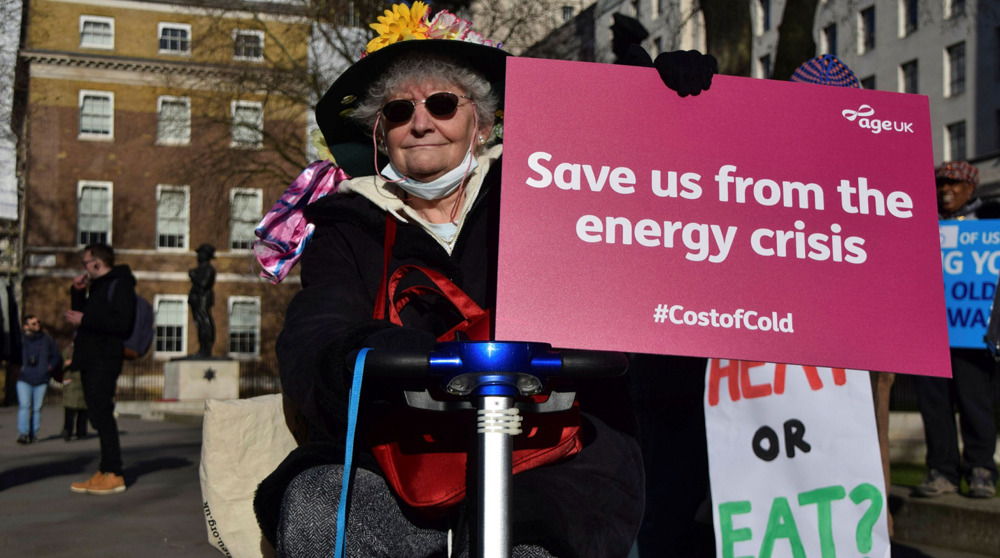PRESS TV, London
2022 has been dominated by a cost-of-living crisis, and the figures are staggering. Inflation is running at a double-digit pace, the highest in 40 years and far outpacing wage growth. While food prices have shot up almost 20% and the cost of heating a typical home has jumped more than 150%.
As temperatures plummet below zero and desperation rises, key sector worker unions have launched mass strike actions to pressure the government to raise wages.
The government has pinned much of the blame on economic recovery from the Covid era, however, critics say it’s ruling Conservative incompetence and leadership instability that has left the economy in a dire state.
A lesser-discussed reason for a Europe-wide crisis is the ongoing Ukraine war. Britain has remained a staunch supporter of continued fighting, even upping it’s shipments of arms and financial support.
Fuel prices, food costs, energy bills, low wages, strikes and inflation have all marred 2022. Does the current government have what it takes to resolve these issues in 2023? Perhaps, bit not without major cost to the taxpayer.
Ghana is interested in purchasing a floating nuclear power plant from Russia, Ghanaian Ambassador to Russian Koma Steem Jehu-Appiah told Sputnik.
"I know that our minister of energy was here last year and signed a corresponding agreement. I think this is innovative, and in a conversation with the minister of energy, he said that the country is interested.
So, Ghana could purchase such a nuclear power plant," the diplomat said when asked about the possibility of Ghana purchasing a floating nuclear power plant.
Russia and Ghana began cooperation in the field of nuclear energy after signing an intergovernmental agreement in 2015.
The agreement outlined plans for joint work in the areas of training specialists, building nuclear power plants and related infrastructure, and providing maintenance services. In October 2023, representatives of Rosatom met with the Ghanaian Ministry of Energy in Cape Town. At the meeting, Russia proposed using floating nuclear power plants to supply power to ...














